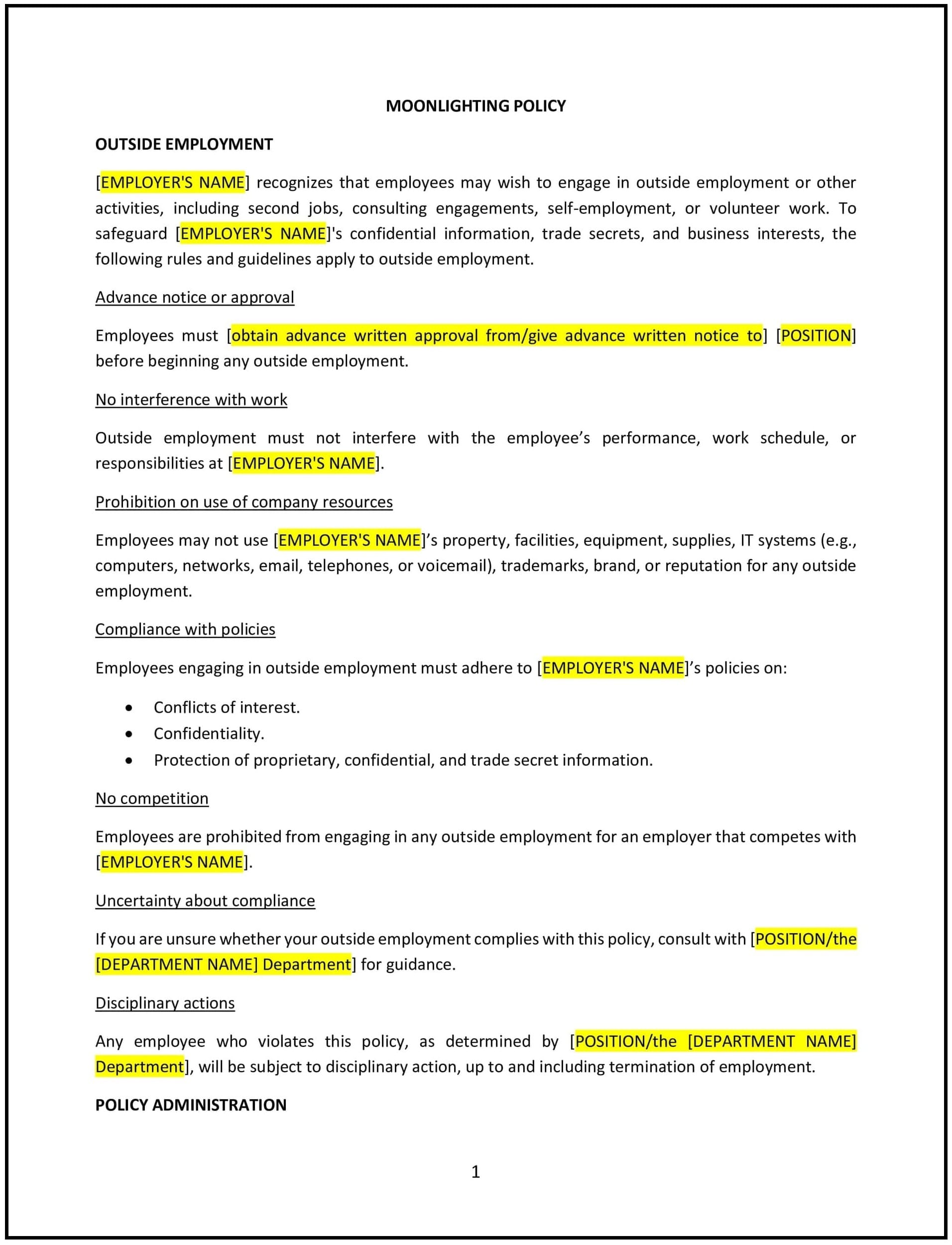Got contracts to review? While you're here for policies, let Cobrief make contract review effortless—start your free review now.

Customize this template for free
Moonlighting policy (Maryland)
This moonlighting policy is designed to help Maryland businesses manage employees who engage in secondary employment or freelance work outside their primary job. It outlines guidelines to ensure that external work does not interfere with job performance, create conflicts of interest, or breach confidentiality agreements.
By adopting this policy, Maryland businesses can promote transparency, maintain productivity, and protect company interests.
How to use this moonlighting policy (Maryland)
- Define moonlighting: Specify what constitutes secondary employment, including freelance work, side businesses, or part-time jobs.
- Outline disclosure requirements: Require employees to inform management or HR of any external employment that may impact their primary role.
- Address conflicts of interest: Prohibit external work that competes with the business, uses company resources, or creates ethical concerns.
- Set performance expectations: Emphasize that employees must meet the standards of their primary role regardless of external commitments.
- Include confidentiality protections: Prohibit the sharing of company-sensitive information in any secondary employment.
- Establish consequences: Outline actions for non-compliance, such as disciplinary measures or termination if conflicts arise.
- Reflect Maryland-specific considerations: Address state labor laws, particularly those related to employee rights and secondary employment.
Benefits of using this moonlighting policy (Maryland)
Implementing this policy provides Maryland businesses with several advantages:
- Promotes transparency: Encourages open communication about external employment.
- Reduces conflicts: Mitigates risks of competition, resource misuse, or confidentiality breaches.
- Maintains productivity: Ensures that secondary employment does not interfere with primary job responsibilities.
- Protects company interests: Safeguards proprietary information and minimizes potential conflicts of interest.
- Aligns with Maryland laws: Reflects state-specific labor and employment regulations.
Tips for using this moonlighting policy (Maryland)
- Communicate expectations: Share the policy with employees during onboarding and provide regular reminders.
- Encourage transparency: Foster an open culture where employees feel comfortable disclosing secondary work.
- Monitor compliance: Periodically review employee disclosures and assess potential conflicts.
- Train managers: Equip supervisors with tools to address moonlighting concerns fairly and consistently.
- Stay updated: Review and revise the policy to reflect changes in Maryland laws or workplace needs.